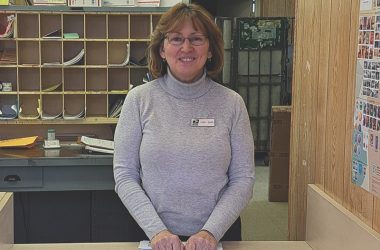by Geoff Fox
During the October town meeting, Town Manager Joe Gilbert introduced a business incentive plan to help draw businesses to Hancock, however there was no movement on the proposed resolution.
Last Wednesday, October 6, town officials sat down together in a workshop to iron out details in the resolution. The matter is on the agenda for tonight’s town meeting.
Gilbert described the origins of the incentive stemming from a conversation between AC&T and himself regarding the process to annex the plot of land across the street where a car wash sits.
Gilbert said AC&T told him they’d be open to the annexation, except they didn’t want to pay town taxes on the property until it opens as a car wash.
The property is currently not within the town limits, so the owners aren’t subject to town property tax there.
According to the town manager, the conversation led to a discussion about ways to encourage properties in town to be developed and used for business operations. Forgiving town property tax for a limited period of time was one option on the table.
Currently the state’s incentive program requires a business to hire at least 50 employees in order to qualify for tax breaks or benefits. In Hancock, most businesses wouldn’t hire more than a handful of people.
Mayor Ralph Salvagno said the taxes involved would be town taxes, which aren’t a huge amount, “but it’s something.”
Councilman Roland Lanehart, Jr. said people who own a commercial building are paying town taxes even though the building is empty.
That’s based on the current evaluation, Salvagno said.
Officials said if there are any improvements made to empty buildings, then could be reassessed for taxation as an incentive to upgrade properties and put them to active use.
“Under that scenario, really any tax forgiveness they’d get now, we’d make it up,” he said.
Councilman Tim Boyer wondered what would happen if someone decided to use the incentive but use the building as just a storage unit in order to avoid taxes.
Gilbert told him there’d have to be “observable, objective, quantifying measures” like a contract, license, building permits, or business entity.
Councilman Tim Smith said the town could specify categories of use, such as retail or storage. Smith added if the person were just using it for storage, they wouldn’t get the town incentive.
Councilman Leo Murray said the town has a business district with a couple of places using storefronts as a storage unit rather than running a business. Gilbert said those businesses are technically within the zoning area.
Gilbert said the planning commission is currently looking at the wide swath of “town center” which runs from Food Lion, to the high school, and to the Triangle restaurant.
One thing the planning commission is looking at is what type of business belongs in the general business district and what doesn’t.
The only business not allowed now in the town center is a junkyard.
Salvagno said the incentive program could set parameters, such as how long the business is open to the public.
“That’s one way it is done,” he said. “You can enforce that.”
Lanehart used the example of his towing business, noting that for his garage to be on the Maryland State Police tow list, there has to be an employee at the garage from 8 a.m. until 5 p.m.
Salvagno added that when people start a new business, the owner could be working another job, so having the door open a certain number of hours a day is a minimal requirement.
The resolution could allow a new business to operate for a year with no town taxes, and to be taxed at 50% for the second year.
Town officials are expected to discuss the tax incentives again at this evening’s council meeting.








